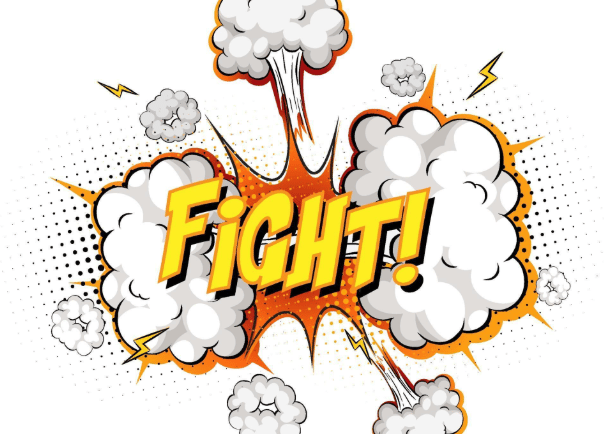Leukaemia v Chronic Pain Syndrome
Godzilla v King Kong
BLOGS
Mike Gibson
11/1/20235 min read


When I was first diagnosed with leukaemia almost 9 years ago, I genuinely believed my immediate future would be dominated by trying to combat lymphocytic leukaemia. But - the truth is that my biggest battle is the daily fight against pain.
And these days, most of the time. I feel like I'm losing.
I found out I had leukaemia after I went to my GP complaining that I was generally feeling tired and 'achy'. He sent me off for a blood test which came back with the leukaemia diagnosis. Understandably, we (the various medical folks, my wife and I) dedicated our immediate future into discovering how far the leukaemia had gone and what treatment I needed, and the general feeling of being fatigued and the generalised 'achiness' was put on the back burner.
In the intervening years, I've been 'fortunate' with the leukaemia in that I haven't needed the most debilitating treatment. But - the pain has gone through the roof to the point where it dominates every living moment of my life. It is the last thing I think about before I go to sleep (and its rare that I get more 1-2 hours before the pain wakes me up) and it is certainly the first thing I think about when I wake up - largely because it is usually the pain that has woken me up.
Of course, the situation with the leukaemia and the effect it has on my blood aggravates the chronic pain, and the leukaemia itself has always been very difficult to deal with. Although there is no cure for it, and it is always terminal, it does not represent an immediate threat to my life.
Part of the problem with pain is that we know so much while simultaneously knowing so little. Dr Lorimer Moseley has done some brilliant work in understanding and analysing pain (for those who suffer with persistent pain, whatever its origin, it's rewarding to read his fascinating material here) but despite the work by him and his many colleagues across the world, we still do not understand pain. For a bit of a 'layman' description of the nature of pain, you might find "Pain Isn't Real" and "More Pain", helpful.
The problem I have found is that after a while, pain overwhelms everything and relegates other important issues into matters of no importance whatsoever. For example, I know that because of my various health issues and the treatment I need to combat them, I have piled on the weight. Every single day, I look at myself and hate what I see in the mirror. I reproach myself and promise myself that I'm going to get more active. But tomorrow comes, and the pain - or fatigue caused by the pain - is just too overwhelming to do anything so the downward cycle simply continues.
Your self confidence, your pride in yourself, your dignity are all out of the window. You anxiously anticipate every appointment to see the Practice Nurse at the GP Surgery because you know she's going to give you a hard time. I love going out on my bike, but all too often, the excited anticipation of a trip out is crushed by the overwhelming anxiety of "what do I do if the pain surges back while I'm out?". It's debilitating.
Pain - at its worst - will dominate your entire life. You will find yourself arranging every action and interaction based on how bad the pain is. It is all-consuming. Oh yeah - you paint the smile on your face and try to engage with people in a cheerful manner, but all the time, your every moment is consumed by how bad the pain is.
It's hard to describe what its like, but let's try this. At some point in their life, everyone has broken a bone, whacked themselves on the thumb with a hammer or had a painful toothache.
On the good days, it's like having a really bad toothache - except that the pain is throughout your body, not just in your mouth. It sits there and gnaws away at you. You can generally carry on with things, but concentration is difficult and your attention keeps getting pulled away from what you are doing by the pain.
On the medium days, it's like your entire body has been hit by a hammer. It hurts all over and trying to do anything other than the most basic of tasks is essentially impossible.
On the worst days, it feels like every single one of bones has been broken. It's like every single inch of your body is being repeatedly smashed to a pulp by a metal-spiked baseball bat. You can't concentrate on anything. Breathing hurts as does anything but the gentlest of movements. Most of the time you are in - or on the verge of - tears with frustration, anger, bitterness - and pain.
At the start, it was 5 good days per week, one medium and one worst. Nowadays, it is 5 days worst, one medium and one good.
I said that we know so little about pain. We know even less about how to treat it. Sure, ever stronger painkillers (analgesics) help, but after a while, the body will build up a tolerance of those painkillers. It will come to expect them at a certain time and if you don't provide them, the brain triggers a pain response to compel you to feed it the painkillers it is expecting. It's like feeding a demanding child.
If you use NSAID painkillers (non-steroidal anti-inflammatory drugs), there is the ever present anxiety about developing stomach bleeds and NSAIDs can be addictive for some. So you start to try to take fewer painkillers and take them at irregular times but you still aren't in control - the pain is. .
I went to a Pain Management Clinic's course for three months. That helped enormously - I learned techniques to manage the pain. But it is still only something that will allow me to "turn the volume down" on the pain. And it requires concentration (it's a good introduction to meditation or yoga) but of course, when the pain is at its worst, there's no way you can concentrate on practicing the techniques you have been taught. So when pain is at its worst, you take some painkillers (with all the associated anxieties about those as detailed above) in the hope that they will take you down from a pain level of 10 to a level of about 8 where you can then employ those techniques. But it's hit and miss. And that's kinda being generous.
You might also be prescribed something like Pregablin which is used as a muscle relaxant. It helps because when we are experiencing an acute pain episode, the muscles become tight and aggravate the pain. Pregabalin relaxes the muscle thereby bringing some relief but again, it is simply turning the volume down.
There is no cure and no prospect of a cure.
I try to find some perspective from reminding myself about those around me who are going through sadness, chemotherapy or some other difficult situation, and remind myself that it could be worse. I remind myself of those I love and who mean the world to me. I think of my wife, my brother and sister, my 'surrogate daughter' and my close friends. That definitely helps. It turns out that love is a powerful ally in the fight.
So many friends and family are dead and I'm still here - but that's not always a consolation. Sometimes I find myself envious of those who have passed and no longer have to face the daily battle against pain or illness.
I'm not sure what all that adds up to, but I just had to get it out of my head. Like I said when I first started writing these blogs, if it helps one other person, then I'm over the moon. But I write these to maintain my own sanity as much as anything else.
But we keep going in the hope that tomorrow will be brighter. I keep telling myself...
